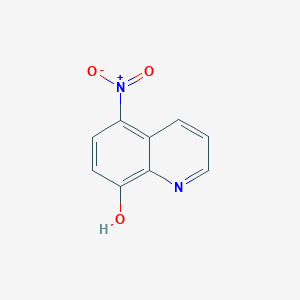-
Categories
-
Pharmaceutical Intermediates
-
Active Pharmaceutical Ingredients
-
Food Additives
- Industrial Coatings
- Agrochemicals
- Dyes and Pigments
- Surfactant
- Flavors and Fragrances
- Chemical Reagents
- Catalyst and Auxiliary
- Natural Products
- Inorganic Chemistry
-
Organic Chemistry
-
Biochemical Engineering
- Analytical Chemistry
- Cosmetic Ingredient
-
Pharmaceutical Intermediates
Promotion
ECHEMI Mall
Wholesale
Weekly Price
Exhibition
News
-
Trade Service
In both vaccination programmes, the protection effectiveness is 90 per cent and 62 per cent, respectively.
AstraZeneta announced on the afternoon of November 23rd, Beijing time, that its new crown (COVID-19) candidate vaccine AZD1222 could reduce the risk of symptomatic COVID-19 by an average of 70%, based on an in-period analysis of large-scale phase III trials conducted in the United Kingdom and Brazil.
While the results are positive, the vaccine may not be as effective as the two mRNA vaccines recently announced by Pfizer/BioNTech and Moderna, which have shown near or 95 percent protective effectiveness against COVID-19 infections in their respective clinical trials.
, Oxford University researchers working with AstraZeneta to develop the vaccine said the latest figures were encouraging.
results from AstraZeneta are based on 131 COVID-19 cases observed in a study involving 11,363 participants.
One of the drug-giving programmes (n-2,741; one and a half doses and then one full dose at intervals of at least one month) has about 90 per cent protection effectiveness, while the other dosing programme (n-8,895; two full doses, at least one month apart) shows 62 per cent protective effectiveness.
analysis of the two drug-giving options (n-11,636) yielded an average protection effectiveness of 70%.
all the results are statistically significant (p.lt;0.0001).
AstraZeneone said an independent data safety monitoring committee determined that the analysis reached the main endpoint of the trial and demonstrated that COVID-19 could be prevented 14 days or more after receiving two doses of the vaccine.
summary analysis includes data from the COV002 II/III trials conducted in the UK and the COV003 Phase III trials conducted in Brazil.
COV002 was a single-blind, multi-center, randomized, controlled Phase II/III trial that assessed the safety, effectiveness and immunogenicity of 12,390 participants in the UK.
participants were patients with chronic diseases with a stable health or medical condition over the age of 18.
participants were randomly given one or two doses of half-dose (approximately 2.5 x 1010 virus particles) or a full dose (approximately 5 x1010 virus particles) of AZD1222 intramuscular injections, or a comparative dose of MenACWY meningococcal vaccine intramuscular injections.
participants took blood samples at multiple points in the year after vaccination for clinical evaluation of safety and immunogenicity.
virologically confirmed testing of suspected cases showing symptoms is carried out through COVID-19 PCR.
, a weekly swab test is performed to detect infection and assess the vaccine's anti-infective effectiveness.
COV003, similar to the COV002 design, is a single-blind, multi-center, randomized, controlled Phase III trial that assesses the safety, effectiveness, and immunogenicity of the AZD1222 in 10,300 participants in Brazil.
participants were patients with chronic diseases with a stable health or medical condition over the age of 18.
participants were randomly given two full doses of AZD1222 intramuscular injections, or the comparative agent MenACWY meningococcal vaccine as the first dose of physiological saline placebo as the second dose of intramuscular injection.
, according to a mid-term analysis, researchers at the University of Oxford believe the vaccine may reduce the spread of the virus because they have observed fewer asymptomatic cases in the trials.
the challenge of controlling the spread of SARS-CoV-2 virus is that some infected people have no symptoms but can still spread the virus.
hospitalization or severe COVID-19 cases were not reported in the study.
assali also said there were no serious vaccine-related safety incidents in the study.
Anthony Fauci, director of the National Institute of Allergy and Infectious Diseases (NIAID), said that if the final analysis, which included more data, showed that the vaccine was actually protected by about 70 percent, "then we're in trouble."
if there were already two 95% vaccines on hand, how would 70% of the vaccines be handled? Who should be vaccinated against this? Nevertheless, he noted, the complete data set needed to be carefully studied before conclusions could be drawn.
"We have to look at the analysis, the real granularity data."
it's always hard to know what's going on through a press release.
" AstraZeneta trial in the U.S. will be delayed because it was suspended for more than a month after a participant in the U.K. had rare and severe transverse spinal corditis, and the U.S. FDA allowed the trial to resume in late October.
AstraZeneta said it intends to seek emergency use authorizations in countries around the world with regulatory frameworks for conditional or early approval of medical products and will seek to join the WHO's emergency use list for rapid approval in low-income countries.
AstraZeneta's vaccine can be stored in cold storage at 2-8 degrees C for six months, making it easier for AstraZenelan vaccines to be deployed in more environmental conditions, especially in low- and middle-income countries and remote areas, than Pfizer and Moderna vaccines, which must be stored at ultra-low temperatures.
Pfizer and BioNTech vaccines need to be stored at -70C for no more than 7 days, and Moderna vaccines need to be stored at -20C for no more than 30 days.
pascal Soriot, chief executive of AstraZeneta, said: "The simple supply chain of vaccines and our non-profit assurance and commitment to broad, fair and timely access means that the vaccine will be affordable and widely available worldwide.
" AstraZeneta said it expected to produce 3 billion doses of the vaccine by 2021.
AstraZeneta/Oxford's COVID-19 candidate vaccine AZD1222 uses a replicated defective chimpanzee adenovirus vector based on a weakened version of the common cold virus (adenovirus), which carries the gene for a protein in SARS-CoV-2.
adenovirus is designed to induce the immune system to produce protective responses to SARS-CoV-2.
the platform has not yet been used in approved vaccines, but has been tested in experimental vaccines against other viruses, including Ebola.
know the forest - pepper







